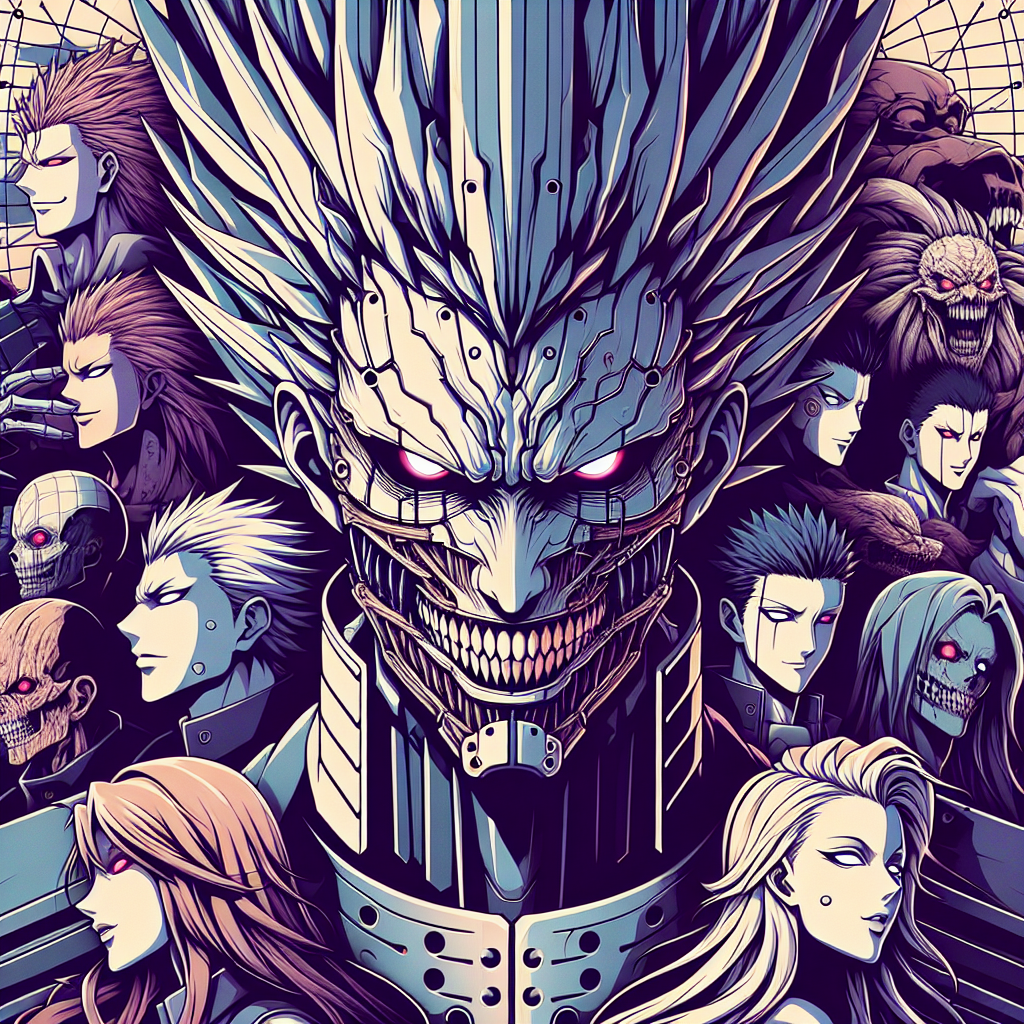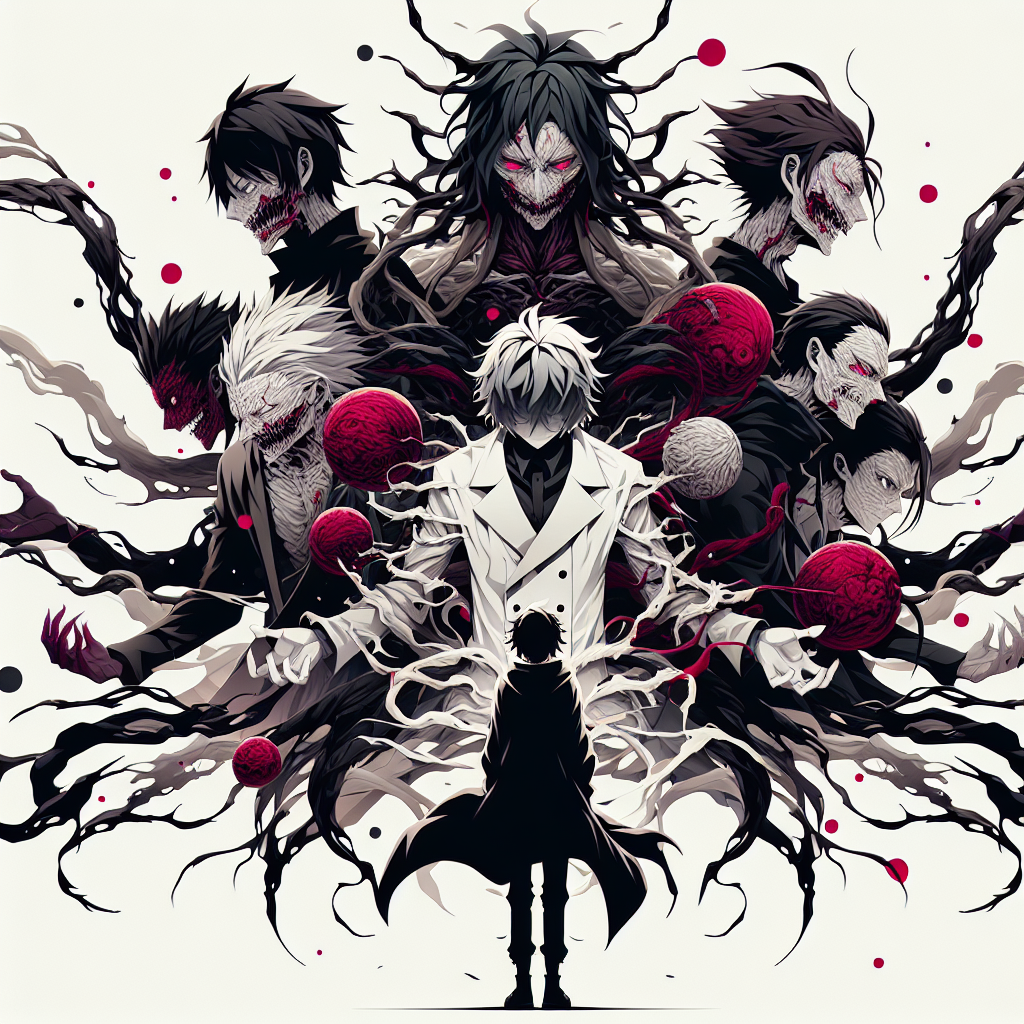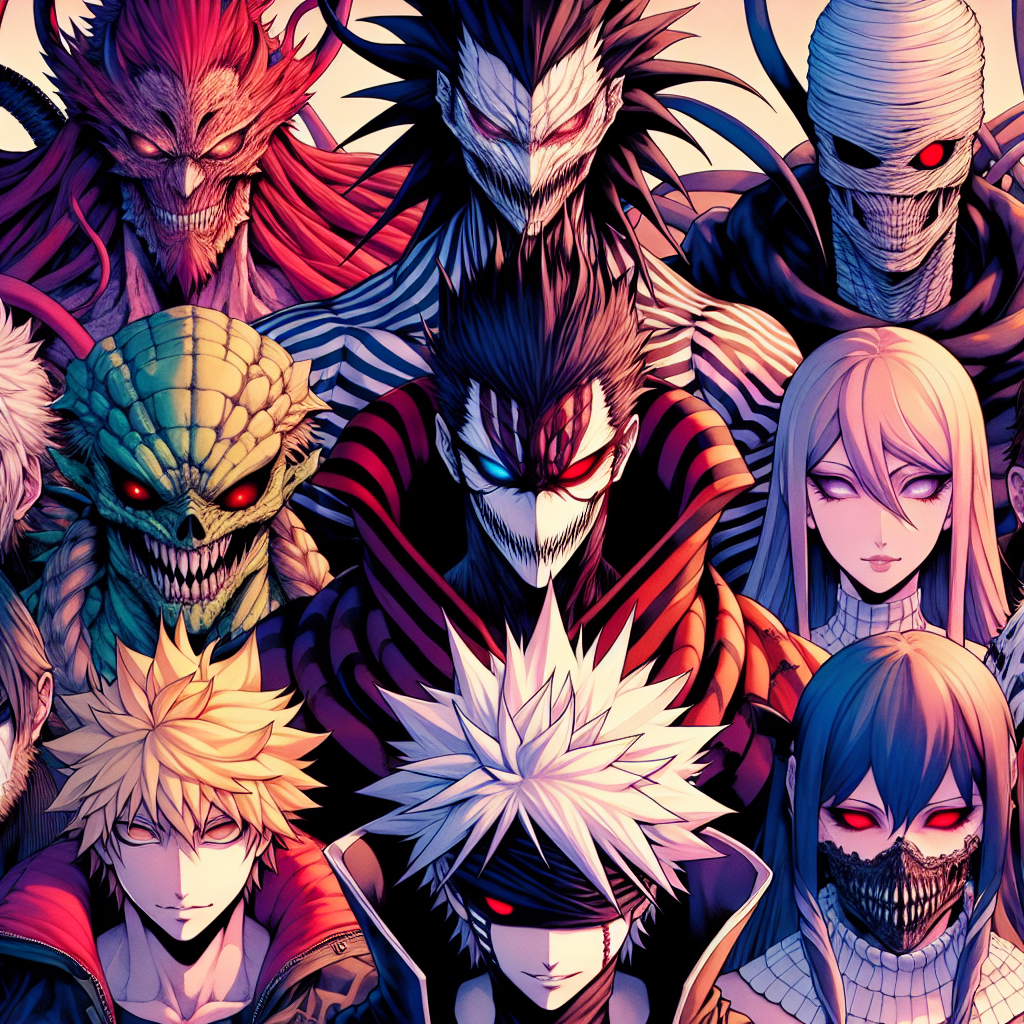
Anime has solidified its position as a dominant force in the global entertainment industry, enchanting viewers with its diverse genres, intricate plotlines, and visually stunning animation. One of the key elements that sets anime apart is its ability to craft compelling villains who serve as formidable adversaries to the protagonists. These antagonists are not merely one-dimensional characters but are often complex and multi-faceted, with motivations and backstories that add depth to the narrative.
From iconic villains who challenge the very essence of heroism to cunning masterminds who orchestrate intricate schemes, anime has produced a wide array of memorable antagonists that have left a lasting impact on audiences. These villains not only push the boundaries of morality but also force the heroes to confront their own beliefs and values, leading to intense and gripping confrontations.
In our exploration of the captivating world of anime villains, we will shine a spotlight on some of the most compelling and unforgettable characters to have graced the screen. From the chilling charisma of a charismatic villain to the tragic past of a fallen antagonist, each entry in our curated list will delve into what makes these villains so intriguing and compelling.

The Anti-Heroes

Light Yagami (Death Note): Light Yagami, the enigmatic protagonist of the anime series Death Note, is a character who delves deep into the murky waters of morality and power dynamics. Initially portrayed as a genius high school student with a strong sense of justice, Light's transformation into a vigilante through the acquisition of the Death Note sets off a chain of events that test the very fabric of his moral fiber. The Death Note, a supernatural notebook that grants its wielder the ability to kill anyone whose name is written in it, becomes both a tool of justice and a catalyst for Light's descent into darkness.
What makes Light Yagami such a compelling character is the way in which his complex moral code evolves throughout the series. At the outset, he believes himself to be a righteous force for good, using the Death Note to rid the world of criminals and create a utopia free from wrongdoing. However, as the series progresses, Light's sense of justice becomes increasingly warped, blurring the lines between right and wrong. His unwavering belief in his own righteousness, coupled with his exceptional intellect, make him a formidable foe not only for his adversaries within the series but also for the audience themselves.
As viewers follow Light's journey from idealistic student to power-hungry vigilante, they are forced to confront their own beliefs about justice, morality, and the nature of power. Light Yagami serves as a chilling example of how absolute power can corrupt absolutely, challenging the audience to question their own perceptions of right and wrong. In the end, Light's tragic downfall serves as a cautionary tale about the dangers of unchecked ambition and the seductive allure of power.
Frieza (Dragon Ball Z): Frieza, the notorious intergalactic tyrant in the Dragon Ball Z universe, is a character shrouded in malevolence and cruelty. His insatiable thirst for power and relentless pursuit of domination make him a formidable adversary to our beloved heroes. Frieza's iconic transformation into a golden form not only elevates his strength to unimaginable levels but also serves as a symbol of his arrogance and superiority. His cold and sadistic nature knows no bounds, instilling fear and dread in all who dare to cross his path. Frieza's legacy as a villain is cemented by his ruthless actions and his unwavering commitment to his own selfish desires, making him a truly unforgettable antagonist in the world of anime and manga.
The Master Manipulators

Johan Liebert (Monster): In the anime Monster, Johan Liebert emerges as a truly complex and enigmatic character, leaving a lasting impact on the audience. His portrayal as a psychological mastermind is both chilling and captivating, showcasing a deep understanding of human nature and a sinister ability to manipulate those around him. What sets Johan apart as a villain is not just his intelligence, but his eerie calmness in the face of chaos, making him all the more unpredictable and terrifying. His motives remain shrouded in mystery, adding a layer of intrigue to his character that keeps viewers constantly questioning his true intentions. As the story unfolds, Johan's actions and decisions reveal a dark and twisted psyche, painting a haunting portrait of a character who embodies the very essence of psychological suspense.
Shougo Makishima (Psycho-Pass): Shougo Makishima emerges as a multifaceted antagonist within the intricate narrative of Psycho-Pass. Beyond his intellectual prowess and charismatic charm, Makishima stands as a formidable figure who dares to question the very foundations of the society depicted in the series. His relentless pursuit of his own ideals, no matter how morally ambiguous they may seem, serves as a stark contrast to the rigid structure of the world he inhabits.
What truly sets Makishima apart is not just his ability to challenge societal norms, but his skill in articulating his dissent through eloquent speeches that resonate with profound philosophical insights. Each word he utters carries weight, inviting both the characters within the story and the audience to ponder the nature of justice, morality, and the essence of being human. Makishima's complex character is a blend of enigma and charisma, drawing viewers into a web of intrigue that extends far beyond the typical dichotomy of hero and villain.
As the narrative unfolds, Makishima's motivations become clearer, revealing a depth of character that transcends the traditional boundaries of good and evil. His interactions with the protagonists serve to not only challenge their beliefs but also to shed light on the flaws inherent in the society they strive to protect. In essence, Makishima's presence serves as a catalyst for introspection, forcing both the characters and the audience to confront uncomfortable truths about the world they thought they knew.
The Enigmatic Enigmas
Hisoka (Hunter x Hunter): Hisoka Morow, a captivating and enigmatic villain from the popular anime and manga series Hunter x Hunter, is known for his unique appearance, eerie demeanor, and complex personality. He constantly seeks powerful adversaries to test his strength and skills, adding tension and suspense to the narrative. His morally ambiguous nature challenges traditional notions of good and evil, attracting a significant following among fans.
Tokyo Ghoul (Ken Kaneki): Ken Kaneki's transformation from a shy college student to a conflicted ghoul in Tokyo Ghoul highlights the internal struggles of a character caught between two worlds. His journey of self-discovery and self-acceptance adds depth to his portrayal as an anti-hero.
Final Thoughts
Anime villains serve as the dark mirror to our beloved heroes, pushing them to their limits and forcing the audience to question their own values. Whether they are anti-heroes, master manipulators, or enigmatic enigmas, these characters leave an indelible mark on the world of anime.
In this exploration of the best anime villains of all time, we've only scratched the surface of the vast tapestry of malevolent characters that populate the anime landscape. As we continue to immerse ourselves in the captivating stories of these villains, let us remember that sometimes, it's the darkness that sheds light on the true nature of our heroes.
Next time you embark on an anime binge-watch, keep an eye out for these enigmatic antagonists, for it is in their shadow that the brilliance of our favorite heroes truly shines.
Share with us your favorite anime villain - one that never fails to send a shiver down your spine or make you question the very essence of good and evil. Embrace the allure of the dark side and let us unmask the enigmatic anime villains that have captured our hearts and minds.
Remember, in the world of anime, the line between hero and villain is often blurred, and it's these complex, multifaceted characters that keep us coming back for more.
Comments